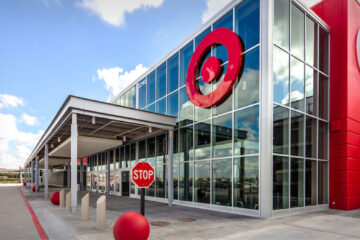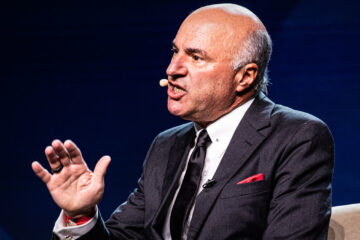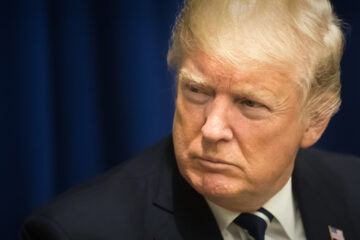The mood in America has been tense ever since President Trump announced his tariffs on April 2, triggering a trade war and leaving many of those who voted for him speechless.
The tariffs penalize any company that relies on imports from other countries.
💵💰 Don’t miss the move: Subscribe to TheStreet’s free daily newsletter 💵💰
Inevitably, many of those businesses will be forced to pass the extra costs on to the consumer in order to avoid taking major damage to their bottom line. And that makes for some very unhappy customers.
The country was rocked by a recent announcement from Walmart (WMT) that the low-cost retailer would be forced to raise prices on some of its stock due to the tariffs. This announcement quickly earned the anger of President Trump, who took to his social media platform Truth Social to declare that Walmart should “eat the tariffs” and not raise customer prices.
Related: More retailers could raise prices after Walmart’s tariff warning
Even if Walmart was able to comply, there’s a much bigger shockwave already at work. TheStreet spoke with retail industry analyst Sucharita Kodali to discuss what that means — and why Walmart’s move will have a massive effect on the entire retail industry.
Walmart’s everyday low prices are about to be a bit less low.
Image source: Shutterstock
How Walmart’s announcement effects the retail sector
Walmart’s price announcement will not only affect the cost of what customers pay in its stores, but will also impact what other retailers do, according to Kodali.
“I do expect other retailers to follow in Walmart’s steps, in large part because once a large global retailer like Walmart is able to come up and say that this is what we are planning on doing and it is inevitable, it almost gives permission for the rest of the retail industry to do the same,” Kodali said.
The analyst also told TheStreet that since Walmart represents the price floor for so many goods, the announcement it made basically gives other retailers the green light to follow suit.
While competing retailers such as Target have not announced price increases yet —CEO Brian Cornell called doing so a “very last resort” on Wednesday during the company’s earnings call — the retailer reported weaker-than-expected sales and was forced to cut its forecast for the year, which does not bode well for the future.
Kodali believes that the entire situation will also pull the trigger on a constant economic fear: inflation.
Related: Target makes key move to catch up to Walmart
“Once you raise prices you absolutely lead to more inflation,” Kodali said. “If you lead to inflation, you typically are going to force the Fed’s hand to also raise interest rates to keep inflation in check. And if that set of dominoes all fall, then we may have another downturn.”
As dire as the news sounds, Kodali does offer one bit of comfort when she reminds us that “there’s still a lot that remains to be seen.”
“I think one unintended consequence will be if so many businesses like Walmart and others are so spooked by tariffs that they raise their prices — even before tariffs have the ability to have an impact on their actual prices,” she said.
“We end up with a similar inflation spiral to what we had a few years ago. And that was not a great time for either the economy or consumer confidence or the stock market. And we may see essentially a redux of that.”


